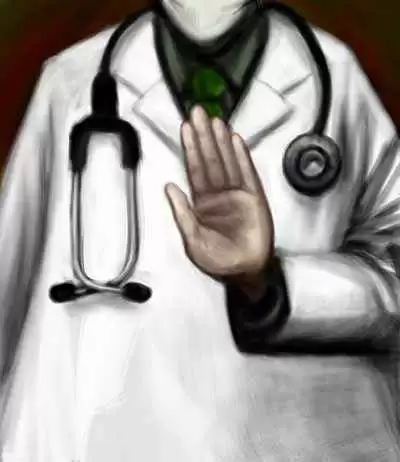
Celiac.com 05/22/2015 - The fact that celiac disease is commonly misdiagnosed will come as little surprise to anyone who's ever gone through what can often be a long, circuitous process of getting diagnosed. Celiac symptoms can be vague, and can mirror symptoms of numerous other conditions.
Even though celiac awareness is improving, and blood screens are becoming more common, misdiagnosis remains common for people who are eventually diagnosed with celiac disease.
Celiac.com Sponsor (A12):
Can you guess the most common misdiagnoses that doctors make for patients with celiac disease?
The most common misdiagnoses include:
- Irritable bowel syndrome: People with celiac disease are often told that they have irritable dowel syndrome when they actually have celiac disease. In fact, IBS is the most common misdiagnosis for people with celiac disease.
- Inflammatory bowel disease: Coming in a close second to IBS, inflammatory bowel disease is another common misdiagnosis for people who actually have celiac disease.
- Gastro-esophageal reflux disease: People with GERD don't have any higher rates of celiac disease than the rest of the population. However, to be fair, a pretty high percentage of newly diagnosed celiac patients have reflux and/or esophageal dysmotility; which might explain the high prevalence of reflux symptoms in celiac disease patients, and the common misdiagnosis of GERD.
- Ulcers: Ulcers are often wrongly suspected, well before celiac disease is finally diagnosed.
- Viral gastroenteritis: Another very common thing doctors suspect long before they suspect celiac disease, is viral gastroenteritis.
- Chronic fatigue syndrome: Fatigue is a common complaint of many people with celiac disease, so maybe it's understandable why many people with celiac disease find themselves with a misdiagnosis of chronic fatigue, rather than an accurate diagnosis of celiac disease.
- Allergies: Many people find themselves wrongly diagnosed with environmental allergies long before they are diagnosed with celiac disease.
- Parasitic infection: Celiac disease symptoms can mirror symptoms of certain gut parasites, which is one reason that many people with celiac disease find themselves being checked for parasites long before they get checked for celiac disease.
- Gallbladder disease: Celiac disease symptoms can mirror symptoms of gallbladder disease, which is why many people who actually have celiac disease find themselves diagnosed with gallbladder problems.
- Colitis: Another common culprit for misdiagnosis is colitis, which shares many symptoms with celiac disease.
- Cystic fibrosis: Many people don't realize that in a number of cases, the symptoms of celiac disease can lead doctors to suspect cystic fibrosis, rather than celiac disease, thus prolonging diagnosis, treatment and recovery.
- Psychological dysfunction: In many cases, celiac disease symptoms can be so hard to pin down that doctors find themselves wondering if the symptoms aren't really in the patient's head. In their quest for diagnosis, many people with celiac disease have been referred to a psychologist, rather than evaluated for celiac disease.
- Lactose intolerance: Lactose intolerance is a common misdiagnosis in celiac patients, because the mucosal damage from gluten leaves them unable to digest lactose-containing products.
In addition to being frustrating and painful, misdiagnosis of celiac disease is a big deal because, left unaddressed, the damage done by the disease continues unabated, and can snowball into further health and wellness problems.
Have you, or anyone you know, suffered through misdiagnosis before being diagnosed with celiac disease? Share your story in our comments section.
Source:
- Open Original Shared Link







Recommended Comments